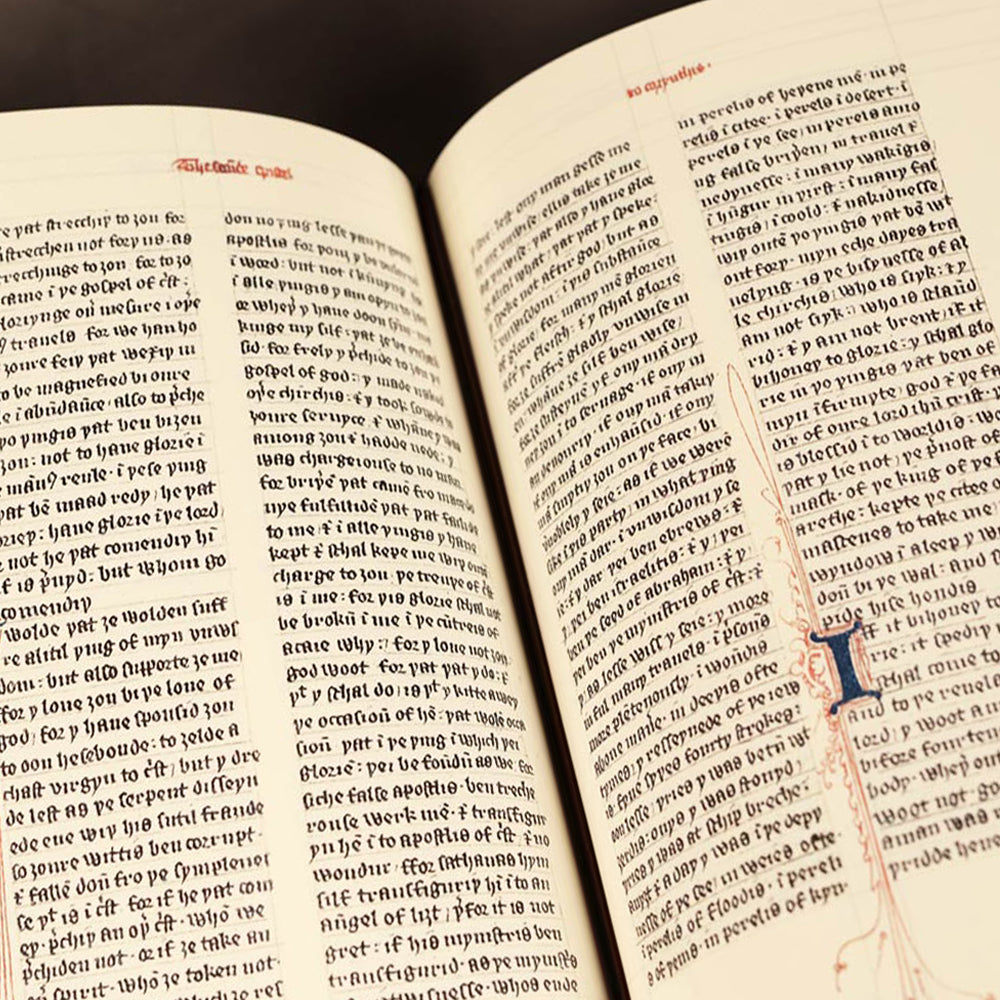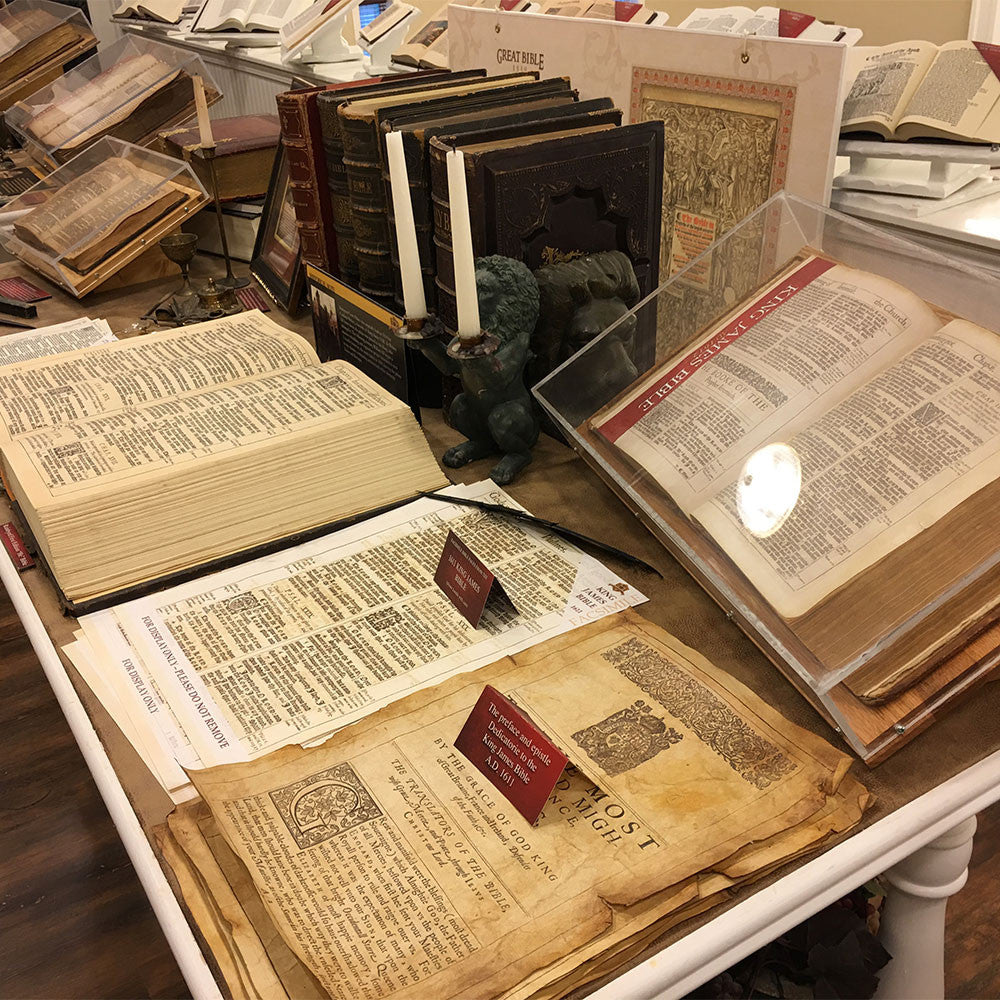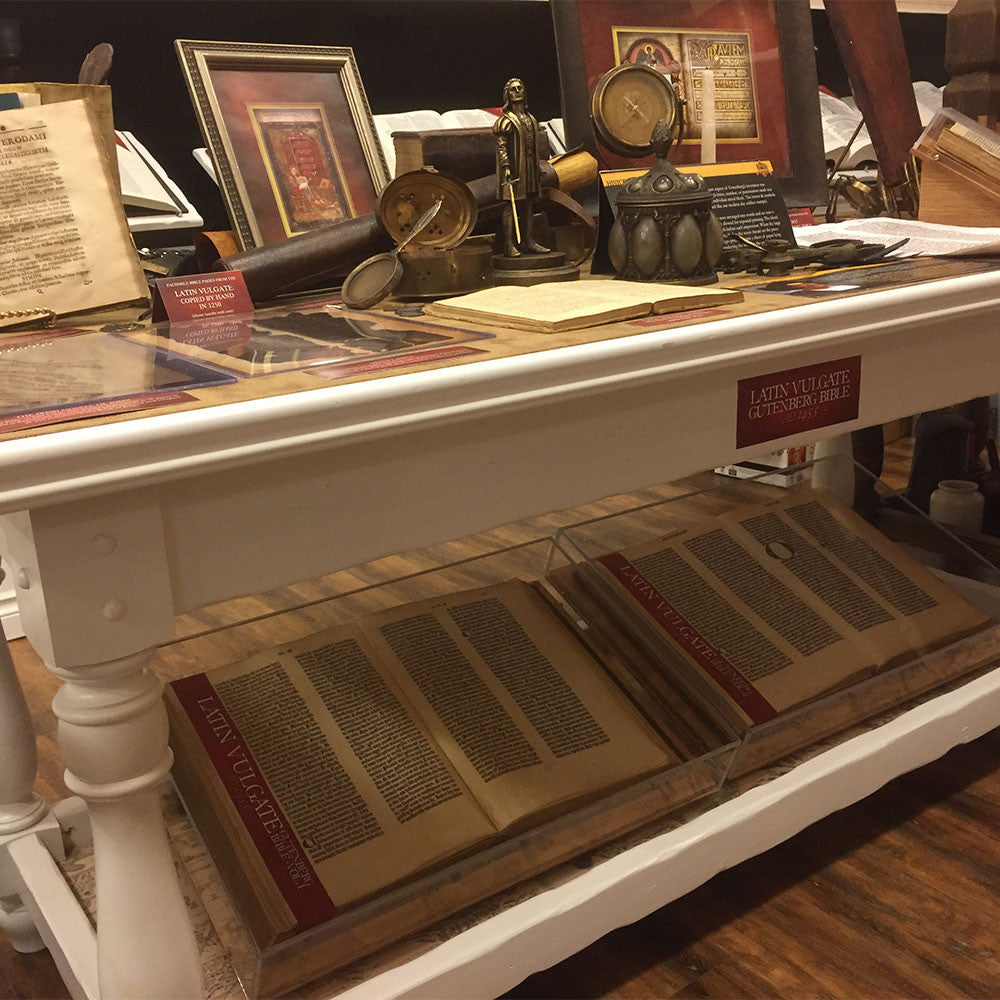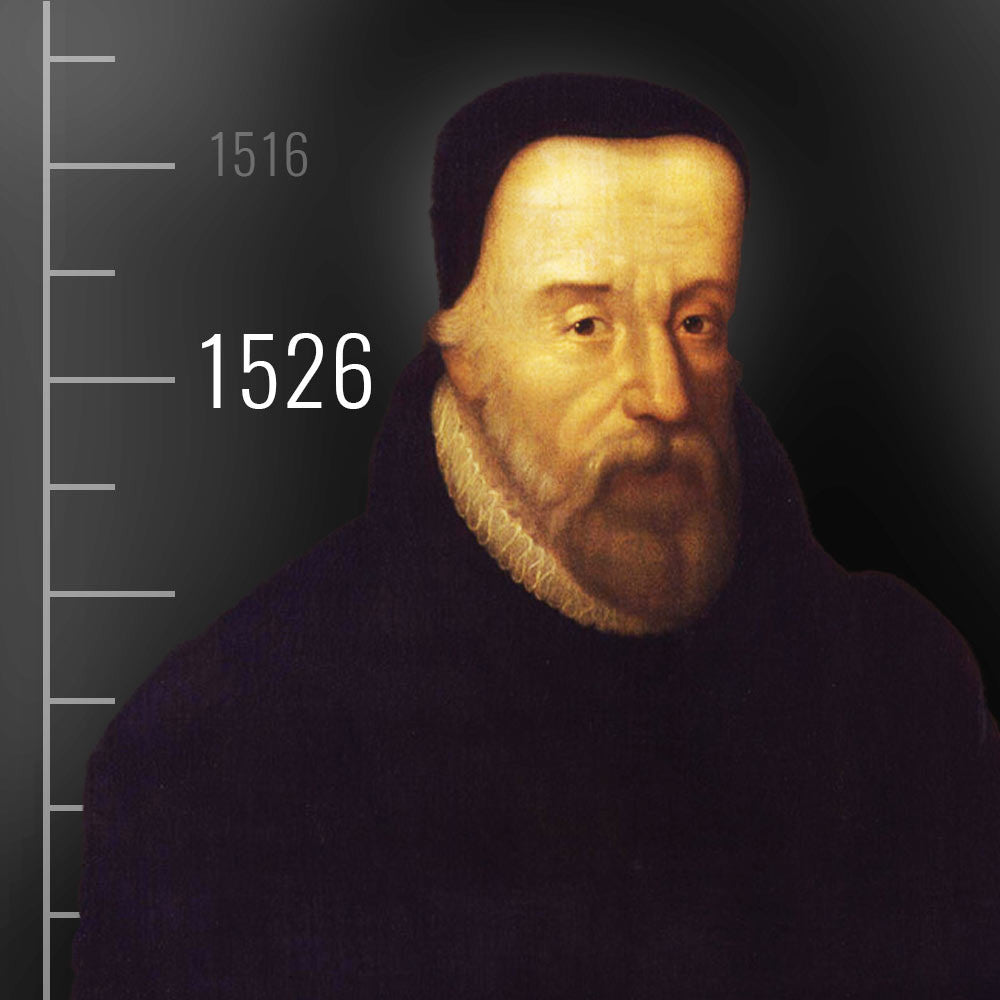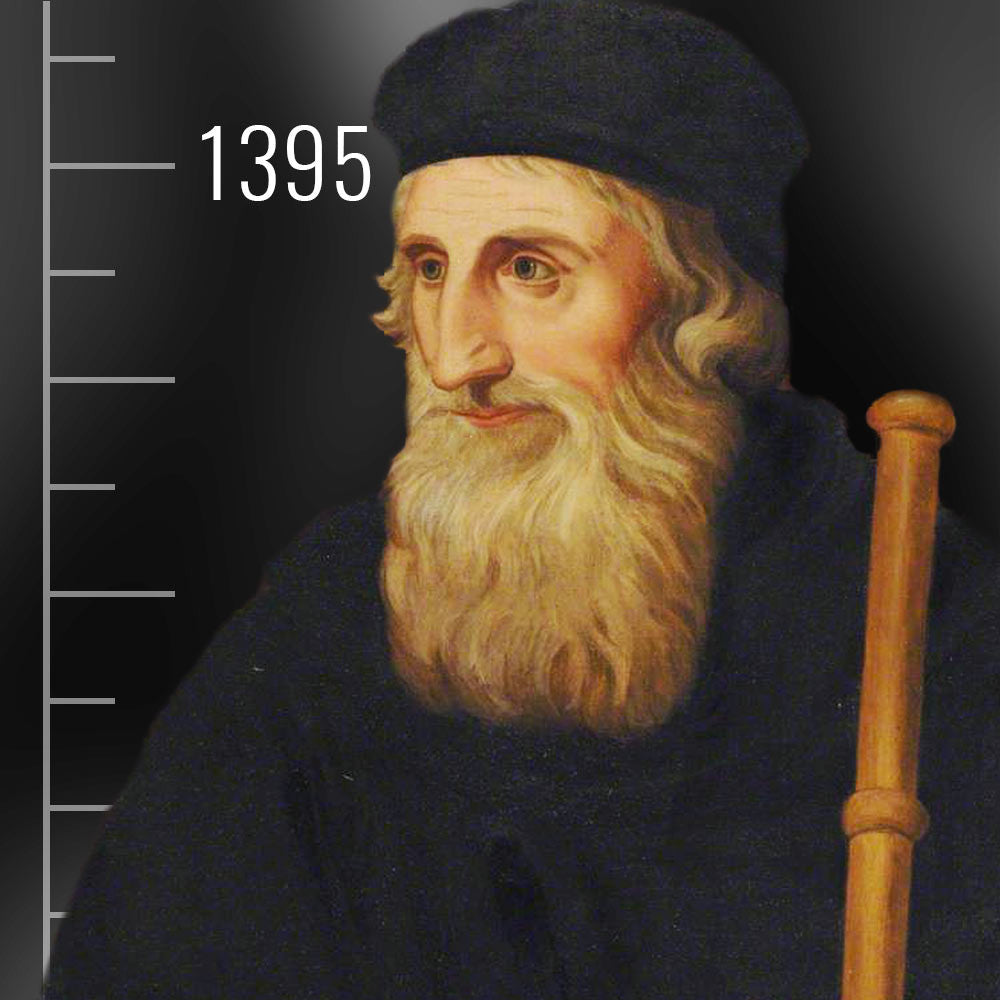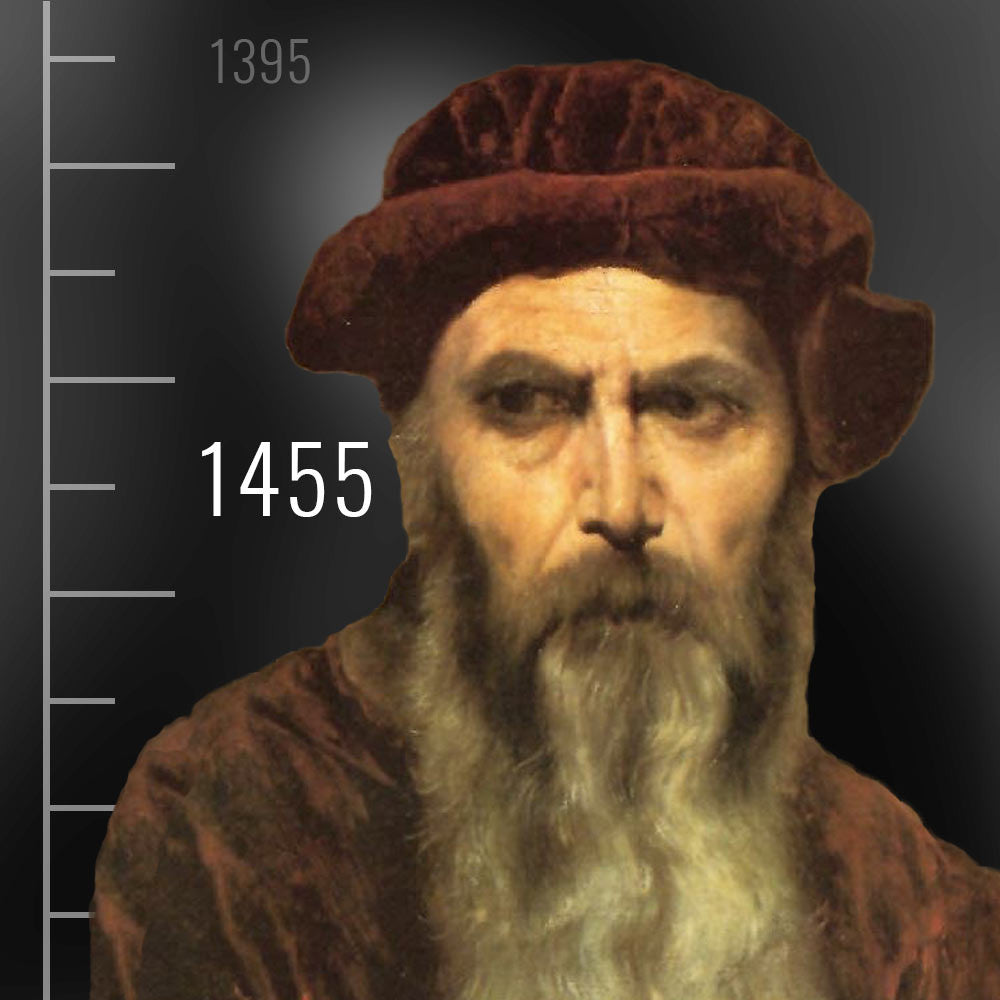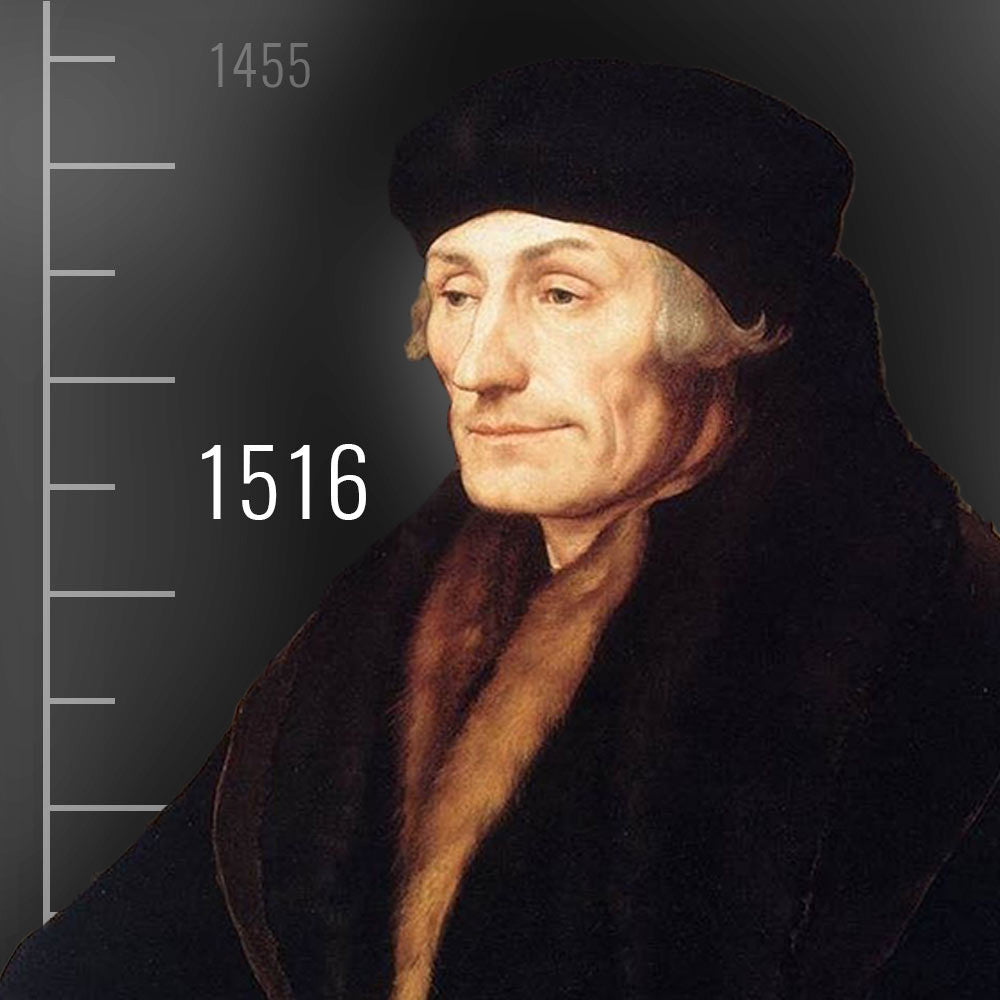William Tyndale was born at North Nibley, near Gloucester, England, sometime between 1484 and 1496. A brilliant scholar, Tyndale spent his early years studying at Oxford University, Magdalen College, and Cambridge University, and earned his Master's Degree at the age of twenty-one. He studied many languages over the course of his life, and became a gifted linguist. An associate once commented that Tyndale was "so skilled in eight languages – English, Latin, Greek, German, French, Italian, Spanish, and Hebrew – that whichever he speaks, you might think it is his native tongue!"
About 1520, Tyndale became the tutor for the family of Sir John Walsh. He diligently studied the Scriptures and began to endorse the doctrines of the Reformation, even though the Catholic Church and the Church of England considered them to be heresies. According to historian John Foxe, during a dinner conversation with a clergyman one evening, Tyndale expressed his desire to translate the Bible into common languages so that all men might have access to the law of God. The clergyman replied, "We are better to be without God's laws than the Pope's.” This statement so infuriated Tyndale that he declared, "I defy the Pope and all his laws. If God spare my life ere many years, I will cause the boy that drives the plough to know more of the Scriptures than you!" Tyndale traveled to London to request authorization from Bishop Cuthbert Tunstall to begin working on an English translation, but he was quickly denied. Realizing that it was impossible to continue in England, Tyndale moved to Germany in 1524 with the help of Sir Humphrey Monmouth and several other London merchants.
When Tyndale arrived in Germany, he possessed very little knowledge of the Hebrew language, but immediately dedicated himself to mastering this difficult tongue to ensure complete accuracy in translating the Bible from the original manuscripts. He remained in cleverly concealed locations to avoid being captured by the emissaries of the Catholic Church and Henry VIII. During this time, Tyndale completed a translation of the Pentateuch, Joshua, Judges, Ruth, First and Second Samuel, First and Second Kings, First and Second Chronicles, and Jonah, and was the first man ever to print the New Testament in English. In order to maintain the accuracy of his translation from the original Greek and Hebrew manuscripts, he introduced many new words and phrases to the English language, such as Jehovah, Passover, and atonement, rather than substituting English words with similar meanings; he also replaced traditional words such as Church, priest, and penance with Congregation, elder, and repentance, to remain true to the original text. His translation work was so exceptional that it constitutes the majority of the Authorized King James Version of 1611.
Tyndale's translation was the first to take advantage of the new medium of the printing press, allowing for wide distribution. The first completed copies of the English New Testament began appearing in England in 1526, and were immediately banned by Henry VIII, the Catholic Church, and the Church of England. Bishop Tunstall ordered all copies that could be found to be gathered and burned at St. Paul's Cross in London, an act that would become a regular occurrence, leading to the destruction of the majority of Tyndale's New Testaments. Many of the copies that survived this time were literally read to pieces.
In addition to his Scripture translation, William Tyndale also translated Erasmus' Handbook for the Christian Soldier (1503), and wrote the following books and commentaries: A Pathway into the Holy Scriptures (1532), The Parable of the Wicked Mammon (1527), The Obedience of a Christian Man (1527-1528), Practyse of Prelates (1530), Exposition of the First Epistle of St. John (1531), Prologue to the Book of Jonah (1531), Exposition upon the V, VI, VII Chapters of Matthew (1532), and A Brief Declaration of the Sacraments (1536).
Believing that the progress of the English Reformation had made it safe to come out of hiding, Tyndale settled at Antwerp in 1534. He continued working as a translator and evangelist, but was soon betrayed by a friend, Henry Phillips, who turned him over to Antwerp authorities. Tyndale was imprisoned in the castle at Vilvoorden, Belgium for over 500 days before being convicted of heresy and treason in a mock trial. On October 6,1536, William Tyndale died a martyr's death, being strangled and burned at the stake. His dying words echoed his heart's cry, "Lord, open the King of England's eyes."

